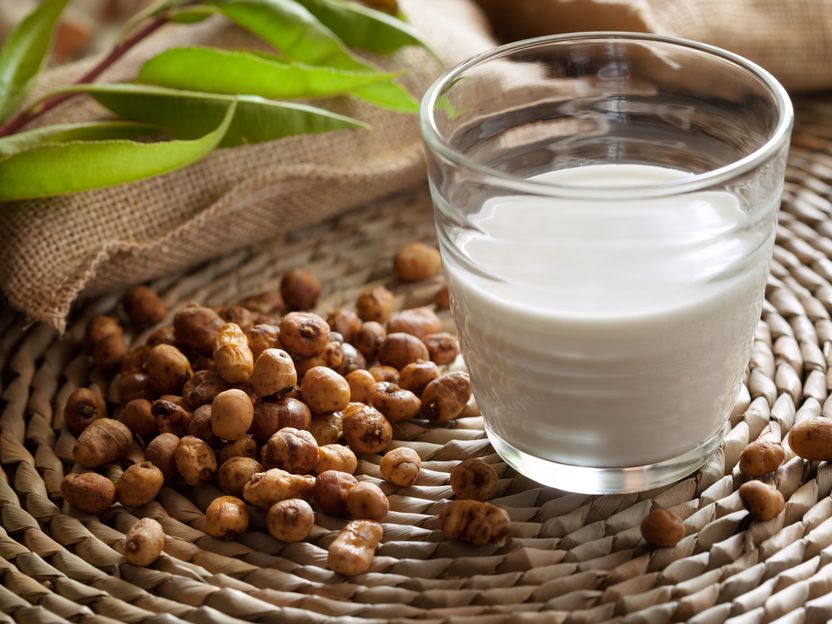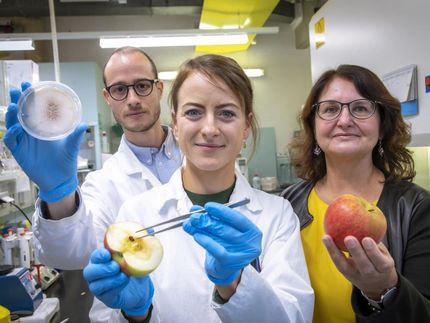Consumption of natural horchata produces beneficial changes in gut microbiota
A CSIC trial shows that drinking a large glass of unpasteurized horchata, with no added sugar, for three days is enough to modify the microorganisms in the digestive system.
Advertisement
Drinking a large glass of natural horchata for three days is enough to produce changes in the intestinal microbiota associated with a healthier microbial profile. This has been demonstrated at the Institute of Agrochemistry and Food Technology (IATA), of the Spanish National Research Council (CSIC), in a trial with 35 volunteers, who drank 300 milliliters per day of unpasteurized horchata, with all its starch and no added sugar, for three days. The results, published in the scientific journal Nutrients, suggest that the consumption of this traditional product made from tigernuts can improve digestive health and general health.

After the brain, the digestive system concentrates the largest number of nerve connections.
CSIC
The study conducted by IATA-CSIC analyzed the intestinal microbiota, the microorganisms present in the digestive system, of 35 volunteers before and after the consumption of unpasteurized natural tigernut milk with no added sugar. This traditional product is rich in resistant starch, oleic acid (like olive oil) and provides antioxidants (polyphenols) present in the tiger nut, from which it is obtained.
The volunteers (all of them of legal age and in good health) were offered a large glass of unpasteurized natural horchata (300 milliliters) for 3 days, and stool samples were obtained before and after drinking it. Gut microbiota analysis by microbial DNA sequencing showed three profiles of microorganisms in the volunteers before the study. These profiles changed in all cases after consumption of horchata, being enriched with various beneficial bacteria and precursors of butyrate, a substance with multiple benefits for the gut and the immune system.
"In only 3 days, the bacterial populations of all volunteers changed towards healthier microbial patterns, similar to those promoted by the Mediterranean or vegetarian diet", says Gaspar Perez, the CSIC researcher at IATA who leads the study.
Specifically, after the trial, the researchers observed an increase in the presence of bacteria such as Akkermansia (associated with weight loss), Christenellaceae and Clostridiales, as well as Faecalibacterium (associated with glucose control), Bifidobacterium and Lachnospira. "These are species that already existed in the digestive system of the volunteers," recalls Gaspar Pérez, "but which the consumption of natural horchata has promoted, improving the profile of the intestinal microbiota of the people who participated in the trial."
Improved digestive health
In 2017, his research group at IATA-CSIC already published a study that unveiled the increased presence of nutrients in unpasteurized natural horchata. Now, inspired by other work carried out by IATA-CSIC researcher M. Carmen Collado, in which they already detected changes in the intestinal flora in three days when consuming nuts, they have carried out this trial to check if the same happened with this traditional product of the Valencian orchard.
After the brain, the digestive system concentrates the largest number of nerve connections in the body, as well as 70% of the immune cells. Therefore, the correct functioning of the intestine has a significant influence on the state of health and general well-being. "In our study we have seen that natural horchata without sugar stimulates the proliferation of beneficial bacteria that help maintain proper digestive function," emphasizes the CSIC scientist. "Thus, its consumption can improve digestive health and general health."
After the results obtained, the research team composed by Gaspar Pérez, M. Carmen Collado, Marta Selma and Izaskun García stresses the need to continue the studies to establish these beneficial effects with more precision, as well as to extend them to other types of horchata.
Note: This article has been translated using a computer system without human intervention. LUMITOS offers these automatic translations to present a wider range of current news. Since this article has been translated with automatic translation, it is possible that it contains errors in vocabulary, syntax or grammar. The original article in Spanish can be found here.


























































